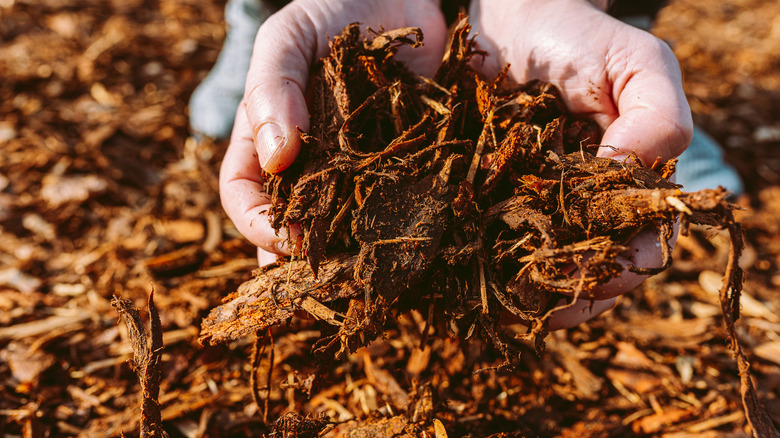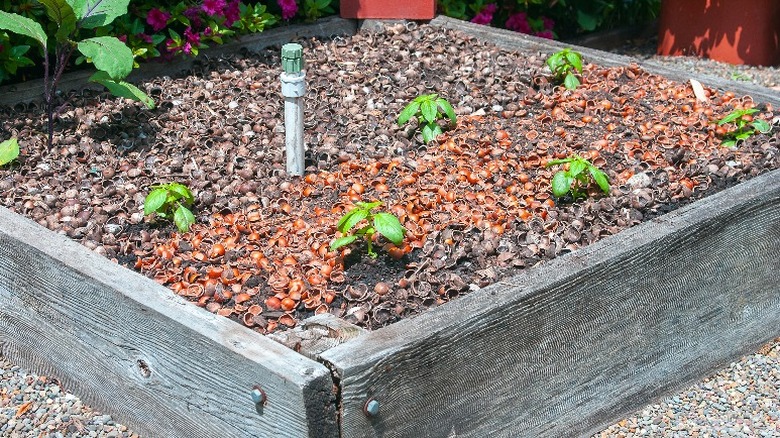The Unexpected Nut Shell That You Can Use As A Mulch Alternative In The Garden
You might be a fan of hazelnuts in your baked goods, but who knew their utility went beyond delicious confection and snacks? After harvesting hazelnuts, producers typically need to figure out what to do with the leftover shells. A by-product of hazelnut production, these husks were once buried or burned. Today, a very popular way to reuse this organic cast-off is to break down the tough hulls into a ready-to-use mulch alternative for the garden.
Mulch acts as a protective barrier on top of the soil, meaning you want to pick the best type of mulch for your garden. Hazelnut shells might be an optimum alternative for vegetable gardens, flower beds, containers, and more. Anyone wanting to be a more eco-conscious gardener will enjoy using natural hazelnut husks. Whereas bark mulch needs to be replaced every one to six years as it breaks down, hazelnut husks take as long as seven to eight years to decompose.
If you have issues with certain pests in the garden, this mulch alternative might offer a solution. The sharp, jagged edges of crushed hazelnut shells naturally deter slugs. Similarly, cats do not like to walk on this pointy material. But what about the main reasons you should use mulch in the garden? According to a study published in the scientific journal Agriculture and Food, hazelnut mulch decreased water loss by 19% and significantly decreased weed germination.
Ideal mulch results in a nutshell
When it comes to this nutty mulch alternative, it's hard to find downsides. It features a brilliant amber color, which is ideal for adding color to flower beds or pots without the harm of artificial dyes. Hazelnut shells are lightweight, meaning that you can spread them in dense layers without issue. The nutshells will allow good airflow while serving as a stable layer against weed growth and soil erosion. Because it takes longer for them to decompose, they compact nicely after being spread.
However, because hazelnut shells are very lightweight, gardeners will have trouble with them rolling outside of your garden beds. Do not spread hazelnut husks on a sloped area; stick to flat, leveled parts of the garden or raised beds. Additionally, broken-down shells may potentially have nut remnants, which could attract squirrels to your garden beds, so you may want to avoid it if you already have problems with the fluffy-tailed rodents. When you understand the truth about gardening mulch, you can avoid making any mistakes when using mulch alternatives like hazelnut shells.

